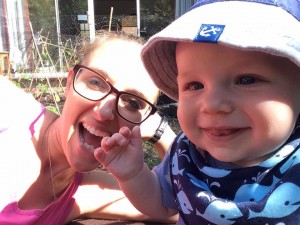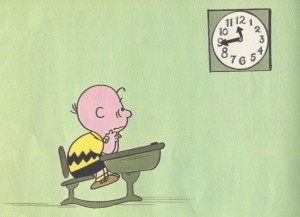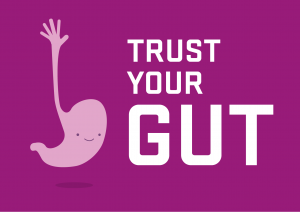This week, following on from our previous blog on mental health in mums, we are delighted to welcome past EDITlab PhD student, Hannah Brown, now mum to a one-year-old boy. In this post she shares her fears and strategies about depression and anxiety in the early days of motherhood.

Ok, here goes. This is the second attempt at this blog. The first was written in the fog of the first 6 months of motherhood. Twelve months in and both me and baby are still here, so I must be doing ok! But I wouldn’t have been OK without all the help and support from friends, family, mental health professionals, and friendly strangers on the bus. So I write now to share my experience in the hope that it might help someone who reads it.
So to start at the beginning – we welcomed our bundle of joy (and snot and tears..) into the world in November and as predicted it turned our worlds upside-down. Actually, his birth isn’t the beginning. I was worried about post-natal depression from the off. Since I have had a couple of episodes of low mood in the past I automatically presumed I was likely to experience postnatal depression. This is a classic case of negative thinking that is so characteristic of depression and anxiety. My husband, who is more of a “glass half full” type, had a more balanced view on things, but as you can see, I was my own worst enemy from the beginning… before you stop reading my sob story, don’t worry it does get better!
The human body is incredible…poorly designed for birthing a baby that’s been growing for 9 months, but amazing none the less that you can go through so much pain and feel wonderful at the end of it, despite going through something akin to a major traffic accident. However, instead of having a few weeks to recover as you would after any major trauma, you’re thrown in at the deep end looking after a tiny person. This responsibility and the inevitable sleep deprivation were major triggers for my anxiety. I found myself worrying more and more about whether I was feeding him enough, whether he was too hot/too cold…still breathing! It’s like there weren’t any thoughts anymore just a whirring in my head and my heart going like the clappers.
“For a long time, I have been embarrassed that as a trainee clinical psychologist I couldn’t recognise the symptoms of anxiety in myself.”
All this worry just made me more exhausted. A couple of weeks before Christmas I woke up (to a crying baby of course) feeling dreadful; light-headed, heart palpitations and a fever. I called NHS direct and described my symptoms…. They heard ‘heart palpitations’ and asked me if I was having a stroke! Paramedics were called and all the tests ruled out anything physical…turns out it was a panic attack. For a long time, I have been embarrassed that as a trainee clinical psychologist I couldn’t recognise the symptoms of anxiety in myself.
“sleep deprivation is pretty much unavoidable as a new parent!”
Sleep deprivation had been the major trigger for my anxiety. Looking back I can see that pre-mumming I had always been able to talk myself out of a worry and rationalise whatever it was that was bothering me but tiredness meant that I didn’t have the energy to do this anymore. Feeling tired became a warning sign for anxiety in the future. I would, and still do to some extent, worry about not getting enough sleep. However, sleep deprivation is pretty much unavoidable as a new parent! It’s like constant exposure therapy (commonly used by psychologists to treat anxiety). I had plenty of opportunities to learn that feeling tired wouldn’t necessarily lead to another panic attack. I have also found medication to be beneficial and with the help of family and friends and a particularly amazing mental health nurse I have developed ways of coping.
So here are my Tips for survival that I wish I could have told my younger (and slightly less frazzled) self
-
Fake it until you make it…

I don’t mean pretending you’re ok when you’re not (it doesn’t work – it just made me feel slightly manic and even more tired!). What I mean is thinking about how life would be different if I wasn’t anxious/low. What would I be doing? And then working towards that way of being….start with something little like taking a shower!
-
Reconnect with things that make you who you are…
I found it implausible that I could do anything that I used to enjoy. Baking, swimming etc. seemed impossible. But nothing is impossible and even if it takes all day to make a cake and you have to split the process into 10-minute chunks, the sense of achievement and enjoyment are worth it…plus I then had something yummy to eat while little man napped.
-
Get out of the house…

And out of your head!!! Try to notice the things around you.
-
Importance of support from family and friends…
For sleep, for a bit of rationalism but NOT for accommodating anxiety! Let people do things for you and don’t feel guilty about it…remember people like to help and will jump at the chance to do so
-
Try not to clock watch…

I found this pretty impossible as being a parent to an infant life seemed to be a rota of feeding, napping and nappies. To begin with I liked having a schedule as it helped me have a sense of predictability which, for an anxious person is the Holy Grail! But if I hear “How long is he going between feeds?” or “How long does he sleep for” again I swear I will throw something! Focusing on time just made life move more slowly and I felt as if I’d been anxious for hours! It helped me just to tell people that schedules put me on edge and take an approach of…when he’s hungry, he’s hungry..
-
Finally, and this is the biggy, trust your gut!
Anxiety has a way of making you think that you’re not doing it right! This led to me paying attention to pseudo-science in an embarrassing way for a psychologist with a research degree. There is no “right” way! Suffice to say I have now banned myself from reading any baby books and will only look at legitimate websites. As tempting as what anyone else has to say on netmums might be, they haven’t met my son and therefore what they have to say is not in the slightest bit relevant!

Find your natural rhythm and just go with it. We don’t live our pre-parenting lives identically according to some book, so why should we take that approach to parenting? Similarly, we don’t eat and sleep the same way everyday, so why should we expect our babies to live by a routine that they haven’t signed up for?
Editor’s note: If you are experiencing, or are worried about someone else who may be experiencing post-natal depression, we recommend this page of information and guidance from the Royal College of Psychiatrists.
